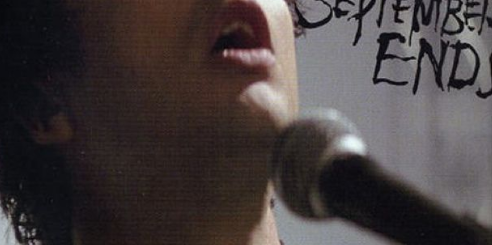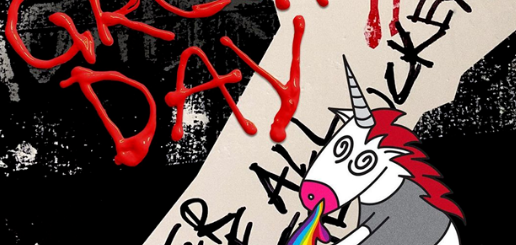Sassafras Roots by Green Day Lyrics Meaning – Unearthing the Poignancy of Punk Procrastination
- Music Video
- Lyrics
-
Song Meaning
- The Ennui of Youth: Explained Through Harmonic Dissonance
- Waste Not, Want Not?—The Irony of Seeking Purpose in the Pointless
- Dissecting the Song’s Hidden Meaning: A Dialogue with Self
- Smoking Cigarettes and Warding Off Regrets: The Song’s Visual Imprint
- Revel In Rebellion: Echoing the Memorable Lines of Connection’s Call
Lyrics
Wasting your time
No obligation, just
Wasting your time
So why are you alone?
Wasting your time
When you could be with me
Wasting your time
Well, I’m a waste like you
With nothing else to do
May I waste your time, too?
Warding off regrets
Wasting your time
Smoking cigarettes
Wasting your time
I’m just a parasite
Wasting your time
Applying myself to
Wasting your time
Well, I’m a waste like you
With nothing else to do
May I waste your time, too?
So why are you alone?
Wasting your time
When you could be with me
Wasting your time
Well, I’m a waste like you
With nothing else to do
May I waste your time, too?
May I waste your time, too?
May I waste your time, too?
May I waste your time, too?
Delving into Green Day’s discography is like unearthing artifacts of punk archaeology; within these cultural layers lies ‘Sassafras Roots’—a seemingly standard track off the band’s third studio album, ‘Dookie.’ While at first glance the song could be brushed off as a cavalier anthem for the idle, a closer analysis reveals a profound story of existential inertia and the craving for connection amid the chaos of one’s youth.
As Green Day catapults listeners into an audible pool of self-aware time mismanagement, ‘Sassafras Roots’ emerges as an intricately composed mirror, reflecting not only the struggles of the trio’s adolescence but also that of generational ennui. The simplicity of the lyrics disguises a deeper resonance within the punk narrative, an ode to the time we spend and the connections we yearn for in the hilarity of our own aimlessness.
The Ennui of Youth: Explained Through Harmonic Dissonance
The song begins with a simple yet sharp declaration: a character aimlessly roaming around, searching for purpose in the mundane. It’s a sentiment that rings especially true during the stunted growth of adolescence, where responsibilities have not yet fully taken hold, and time seems to stretch infinitely. The startling honesty with which the character accepts their own wastefulness is backed by chords that drive the message home with the bite that we’ve come to associate with punk rock.
Green Day’s prowess lies in their ability to lay bare the rawness of youth. Billie Joe Armstrong’s vocal delivery is nonchalant, yet charged with a kind of passionate apathy that is almost oxymoronic. Amidst fast-paced strumming and the relentless drums, the song’s harmonic structure conveys a harmony in disarray, an organized chaos that speaks volumes to the experiences of young listeners finding their way.
Waste Not, Want Not?—The Irony of Seeking Purpose in the Pointless
The irony of the song’s chorus, ‘May I waste your time, too?’, serves as a poignant reminder that even in our shared sense of purposelessness, we seek companionship. It hints at an underlying truth – that perhaps wasting time isn’t as inconsequential as it seems if it’s shared with someone else.
The dichotomy of wanting to form meaningful relationships while feeling inherently meaningless ourselves creates an alluring paradox. The craving to connect on the basis of shared wastefulness both mocks and deftly captures a generational voice—one that understands the value of time and chooses to frivolously use it as a form of rebellion or solace.
Dissecting the Song’s Hidden Meaning: A Dialogue with Self
At its core, ‘Sassafras Roots’ is a dialogue—the narrator speaks to the self as much as to the listener. The repeated questioning, ‘So why are you alone? Wasting your time,’ could be seen as an internal monologue, a challenge to break free from the self-imposed isolation that comes with feeling directionless.
By framing time-wasting as a communal activity, Armstrong invites us to reflect on the nature of our own companionship. Is it enough to simply be together in idleness, or is our tendency to ‘waste’ time a deeper cry for meaning, for comprehension of our own sassafras roots—a metaphor for something foundational yet underexplored within us?
Smoking Cigarettes and Warding Off Regrets: The Song’s Visual Imprint
The imagery in ‘Sassafras Roots’ is as vivid as the smoke tendrils from the cigarettes mentioned. It’s a visual cue to the lethargy and the self-destructive behavior that sometimes accompanies the lack of ambition. Yet, it provides a common backdrop where our collective memories linger, adding a layer of nostalgia to the narrative.
Green Day turns this shared, visceral experience into a universal backdrop—the background noise to countless stories of youthful resistance and reflections. The reminder that time wasted is not always time lost, but rather, a chapter of existential contemplation and subtle growth.
Revel In Rebellion: Echoing the Memorable Lines of Connection’s Call
The song’s deceptively simple lines ‘Well, I’m a waste like you / With nothing else to do’ operate on multiple levels. There is an acceptance, a camaraderie in mediocrity that validates the experiences of those who may feel on the fringes of societal progress.
This isn’t just a track; it’s a siren song for those who find solace in the margins, a daring embrace of societal judgment. Green Day manages to take the mundane and focuses a lens on its hidden profundity, asking in every electrically-charged note, ‘if we’re wasting time anyway, why not do it together?’








